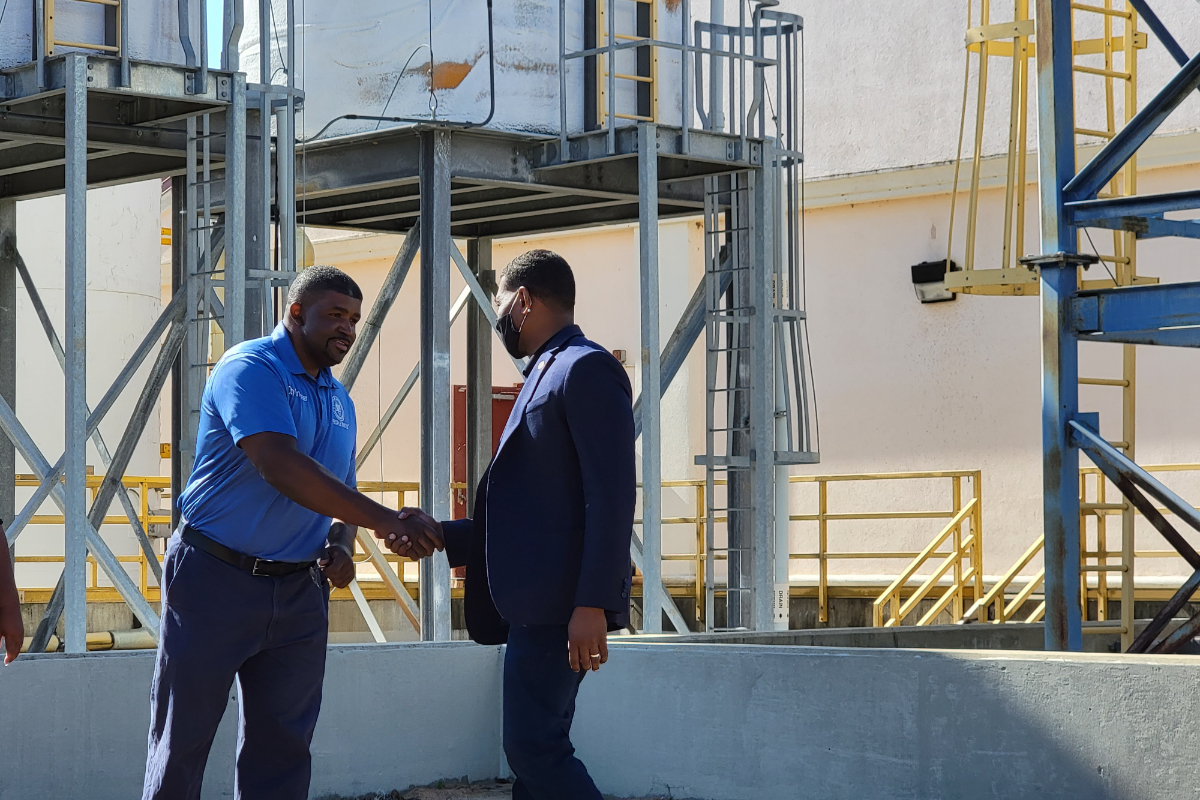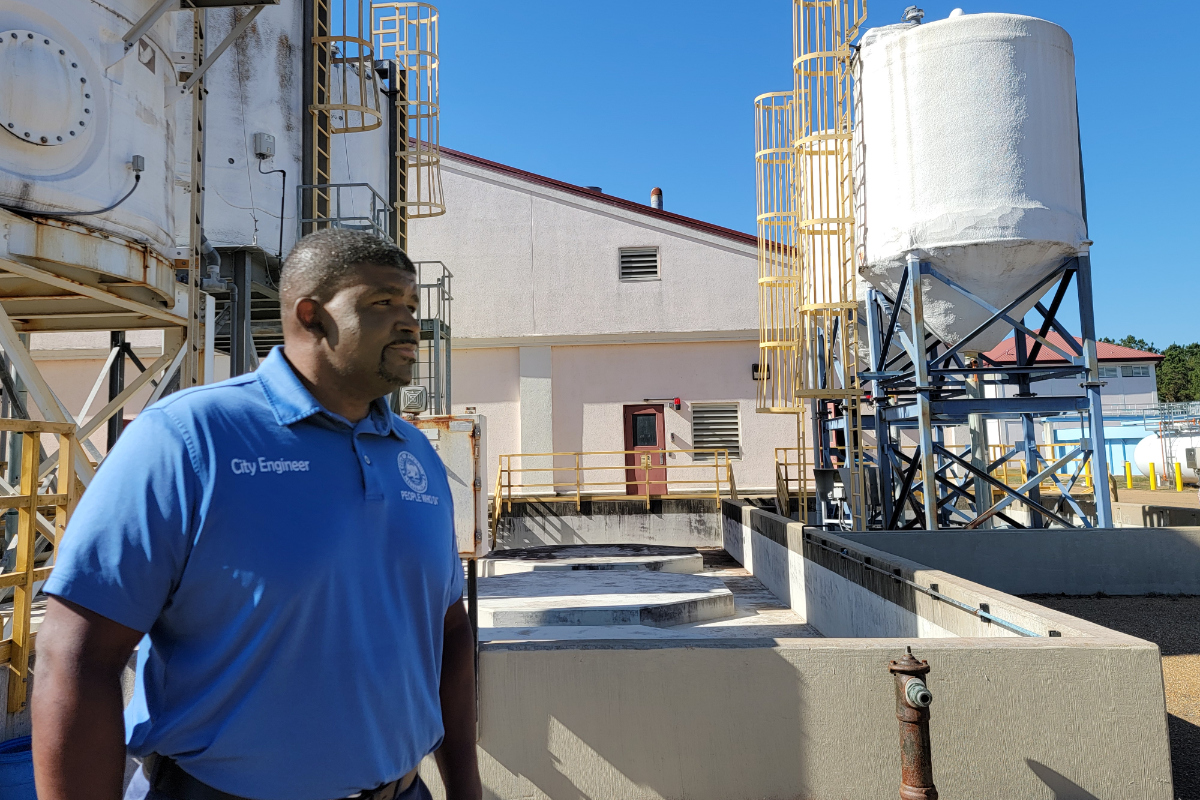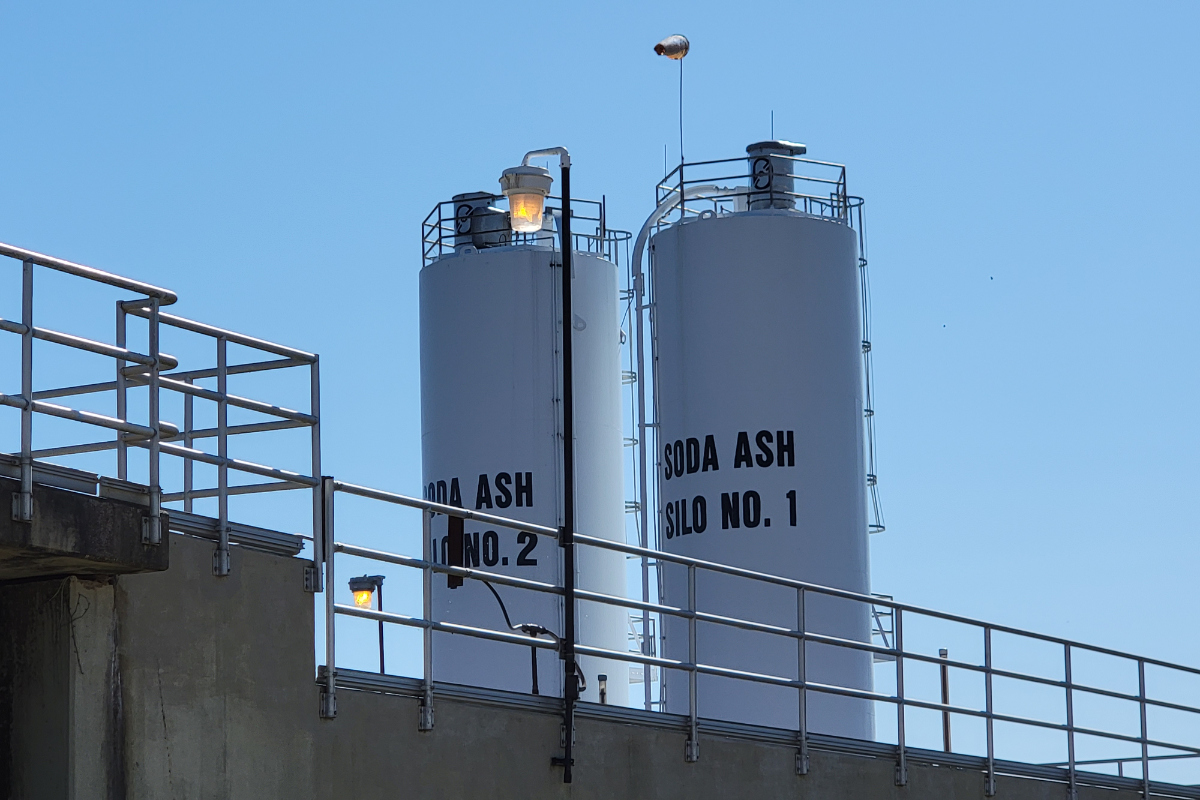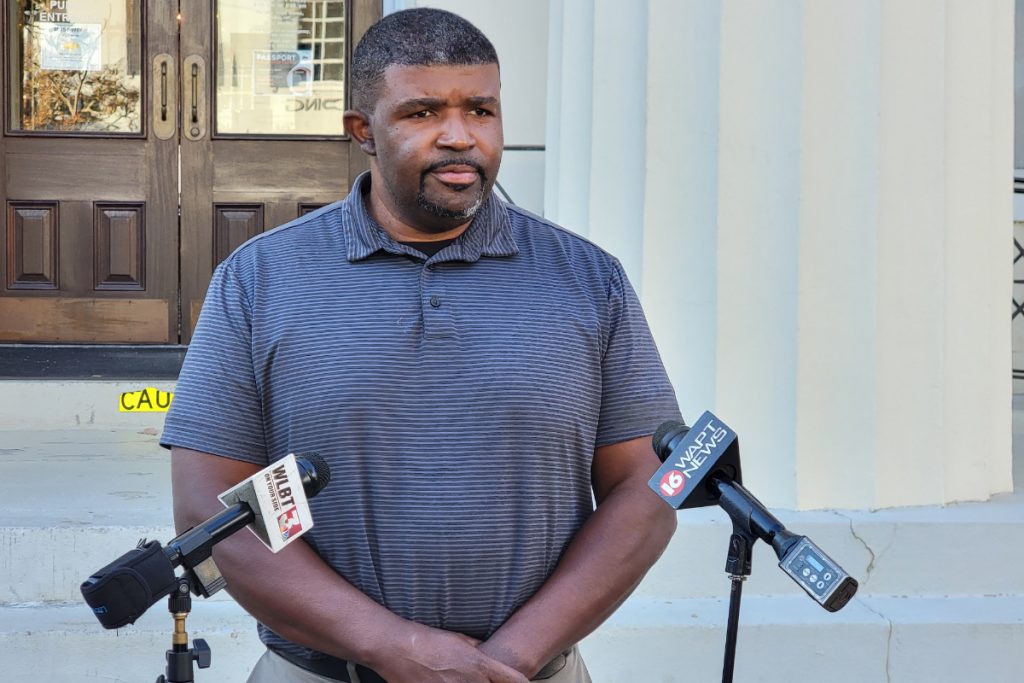The capital city is once again without clean water, after the City of Jackson announced that a bad batch of coagulant chemicals forced the O.B. Curtis Water Treatment Plant to shut down a significant portion of its water production system.
The day after meeting Michael S. Regan, the administrator of the Environmental Protection Agency, City Engineer Charles Williams addressed the media outside City Hall, updating the public on the chemical issue that has Jackson under another long boil-water notice.
“Late Saturday and early Sunday we started having chemical feed issues with our (aluminum chlorohydrate) process… as a result we had to shut the conventional side down and only were able to provide water to the city using J.H. Fewell and the membrane side,” Williams explained.

The outage left around 10,000 to 15,000 residents without water for much of Monday and Tuesday. While pressure in many neighborhoods around the city has already improved significantly, Williams acknowledged that parts of South Jackson would continue to struggle with pressure issues as the system repressurizes.
“We hope that at some point tomorrow, or maybe Thursday, depending on (the Mississippi State Department of Health’s) decision, we can start sampling. Obviously, we’re going to need two consecutive days of (safe) samples before the boil-water notice can be lifted,” Williams said. This means that it is likely to be late in the week before the state health department can confirm that Jackson’s water is safe, and possibly longer.
Yesterday, at Wilkins Elementary School, Mayor Chokwe A. Lumumba acknowledged that Jackson’s water system was still in deep crisis. “While in some moments we may have water, we are constantly in a state of emergency,” he said. “Because it’s not a matter of if, it’s a matter of when.”
The when, in this case, was already occurring.
‘We Got A Bad Batch’
The chemical at the heart of this newest water system failure is aluminum chlorohydrate, a coagulant used in water filtration. Coagulants react with detritus in untreated water, forcing smaller particles into dense clumps that settle at the bottom of basins during the treatment process.
“We believe we got a bad batch,” Williams explained, “and we had a very difficult time trying to clean it out.” The Mississippi Free Press asked Williams at today’s press event if the bad coagulant could have posed any health risk to Jackson residents prior to the shutdown of the system.
“The conventional side was shut down prior to release of the precautionary boil water notice,” Williams explained. A risk of improper treatment “was why we shut that side down,” he added. “We were not going to risk putting any water out of the system that was not in compliance.”
Williams said an investigation into how the bad coagulant was sourced was forthcoming, and that conversations with the manufacturer of the aluminum chlorohydrate were needed to ensure that the issue is not replicated in the future.

But the issue with the coagulant began Saturday. The Mississippi Free Press asked if, after the conventional side had shut down, there had been any hope of keeping the whole system pressurized enough to avoid a collapse like Monday’s.
“Yes,” Williams replied. “We’ve done it before. But, unfortunately, while you’re trying to do that, you only have a limited amount of time (to get the conventional side working), because at some point you have to do maintenance. You can only push water out so long, and then you have to take a step back and fill your clear wells back up.”
O.B. Curtis’ “conventional” side is a series of basins and filtration systems that provides a significant portion of Jackson’s water supply. With this part of O.B. Curtis’ system shut down, all that remained in operation was its membrane filtration system and J.H. Fewell, Jackson’s other water-treatment facility. J.H. Fewell is over a century old and only in operation to bolster the struggling performance of O.B. Curtis.
“As a result (of the chemicals),” Williams explained, “we dropped below 65 PSI, which is the threshold for a citywide boil water notice.” When parts of the city’s water-treatment system fail, the reduced output causes reduced pressure—measured in pounds per square inch—and the result is empty pipes.

But while production has already restarted, and the slow process of refilling the pipes is well underway, Williams has explained previously that any time the system drops below 65 PSI, the city is forced into a boil-water notice until MSDH can confirm that the water is safe.
This is because the void in the system left when the water is drained can suck in untreated groundwater in the city’s transmission system. This untreated water could contain disease-causing sediment. Only extensive testing after the system is repressurized can confirm the safety of the drinking water.
Williams closed his remarks by reminding residents that Jackson’s water system is indeed still lingering at the edge of crisis. “I hope that we don’t get amnesia about the system itself and how vulnerable it is. This is why it’s important for us to continue making the necessary improvements, not just when we have a crisis, but continually throughout the city,” Williams said.









